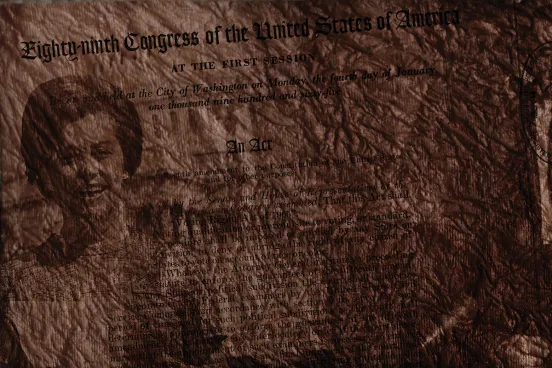
Insurance companies were unprepared to deal with the enormous insured property losses, estimated at about $39.5 billion, that resulted from the 9/11 terrorist attacks. Concerned about the possibility of future terrorist incidents and unsure how to pay for them, many insurance companies made terrorism risk coverage unaffordable or opted not to provide it, making it difficult for certain sectors—including the real estate and construction markets—to get loans for their investments.
In an effort to stabilize the insurance industry, Congress in 2002 enacted the Terrorism Risk Insurance Act (TRIA), which required property-casualty insurers to offer terrorism insurance and made the federal government the reinsurer of terrorism-related risks for insurance companies.
According to Kyle Logue, the Wade H. and Dores M. McCree Collegiate Professor of Law, the law, as it has been amended through the years, works as follows: In the event of a major terrorism-related catastrophe in the United States, the first $25 to $30 billion of insured property-casualty losses would be covered by private insurance companies; any insured losses in excess of that retention would be covered by the federal government, with the government paying 85 percent and private insurers continuing to pay 15 percent. The government’s contributions would be capped at $100 billion.
“If losses were to exceed the $100 billion cap,” Logue says, “there is no current legal requirement that the federal government or private insurers provide coverage. But it is difficult to imagine that the federal government, through Federal Emergency Management Agency grants and loans, would not step in.”
Although TRIA requires insurers to offer terrorism risk coverage, it does not specify what price must be charged. “As a result,” says Logue, “terrorism risk insurance is at least partly determined by market forces, subject to state regulatory oversight.”
Logue also points out that federal terrorism insurance payouts must be preceded by a decision by the secretaries of treasury and state and the U.S. attorney general that there has indeed been “an act of terrorism,” as defined under the statute.
While TRIA was not meant to be a permanent law—“it was originally intended to be a temporary backstop to get the insurance industry back on its feet,” Logue notes—the law was renewed for two years in 2005 and for another seven years in 2007. TRIA is set to expire on December 31, 2014, unless Congress renews it for a third time.
Logue has been studying TRIA since 2003, when he and Saul Levmore of the University of Chicago coauthored the paper “Insuring Against Terrorism—and Crime” (Law & Economics Working Papers Archive: 2003-2009). An authority on insurance law and policy who has been teaching and researching the topic for 20 years, Logue says he became interested in TRIA because 9/11 “was an extraordinary event from the perspective of an insurance scholar.”
Last April, Logue was a panelist at a TRIA policy summit sponsored by National Journal, during which the pros and cons of TRIA and its future were debated. While supporters say TRIA helps to lower premium costs and increases terrorism risk policy coverage across the country, critics argue that it unfairly asks taxpayers, especially those living in areas that are less likely to be targeted by terrorists, to subsidize insurance coverage for property owners in more terrorism-prone areas, such as major urban centers.
Since the summit was held, the Insurance Subcommittee of the U.S. House Financial Services Committee proposed the TRIA Reform Act of 2014 in early June, which would extend TRIA for five more years with some changes. Should TRIA not be renewed, Logue predicts two possibilities: There could be a market demand for insurance companies to continue to provide terrorism risk coverage without government backing, or insurance companies could introduce terrorism risk exclusions into their policies.
“If TRIA disappears, there is a possibility that the bigger insurance companies will find a way to provide coverage based on customer demand,” Logue says, “but the vast majority of insurers aren’t saying this will happen.
“Most insurance companies are behind renewing the federal law, because their claim is that if TRIA doesn’t get reenacted, policy exclusions will start to be reintroduced, which will be a major hit to the real estate market in major cities where they think a terrorist attack is more likely to happen again.”







